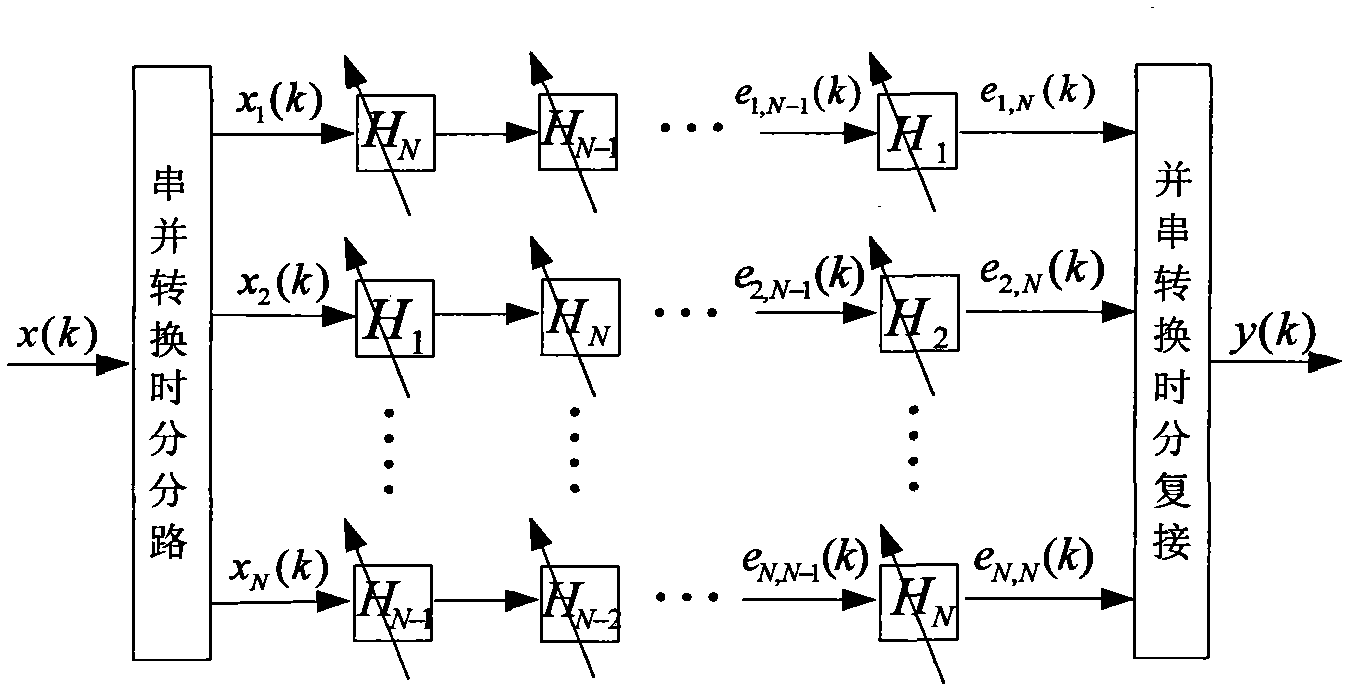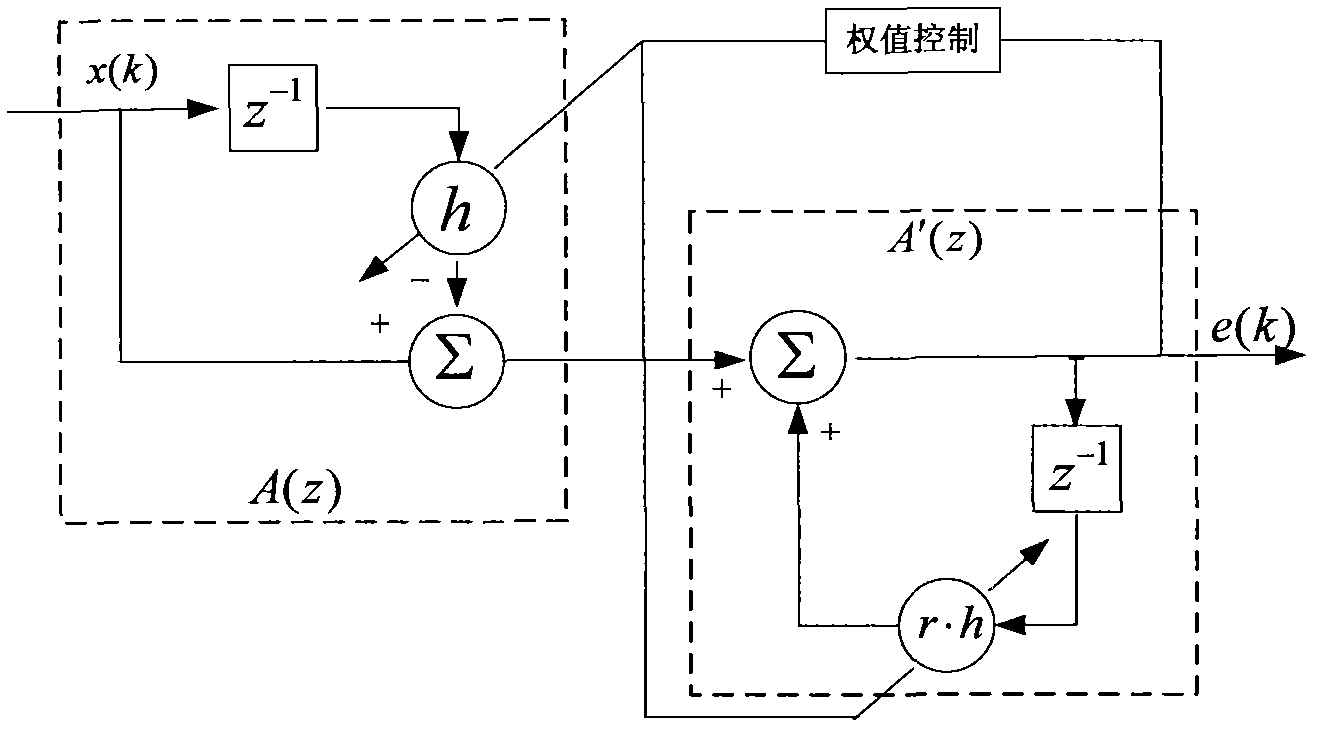TDM (Time Division Multiplexing)-based high-order adaptive wave trap of parallel structure and adaptive wave trap method
An adaptive notch filter and self-adaptive notch technology, applied in the field of communication, can solve problems such as poor notch effect and stability, high implementation complexity, and low implementation complexity, so as to reduce implementation complexity and reduce The amount of calculation and the notch effect are good
- Summary
- Abstract
- Description
- Claims
- Application Information
AI Technical Summary
Problems solved by technology
Method used
Image
Examples
Embodiment 1
[0046] refer to figure 1 , the present invention is a high-order adaptive notch filter based on TDM parallel structure, including serial-to-parallel conversion time-division splitter, parallel-serial conversion time-division multiplexer, and N-order Adaptive notch filter; the received signal x(k) of a communication receiver is input to the N-order adaptive notch filter in parallel at the same time, and after the narrow-band strong interference in the signal is filtered by the adaptive notch filter, it is combined into one channel The signal y(k) is output. The serial-to-parallel conversion time-division splitter of the present invention is a splitter that adopts sample point interleaving TDM technology to perform branching, and the parallel-to-serial conversion time-division multiplexer is a multiplexer that uses TDM technology to perform multiplexing, and the received signal x(k) It is an intermediate frequency analysis signal, including a zero intermediate frequency analysi...
Embodiment 2
[0067] The TDM-based parallel structure high-order adaptive notch filter and the TDM-based parallel structure high-order adaptive notch method of the present invention are the same as those in Embodiment 1.
[0068] Now assume again that x(k) is a broadband zero-IF complex signal with a sampling rate of B samples / second and a signal bandwidth of B x Satisfy B x J Hz, and B J x . Above-mentioned broadband zero intermediate frequency complex signal x (k) adopts the notch process of parallel structure adaptive notch filter of the present invention to comprise the following steps:
[0069] Step 1: adopting the method of sampling point interleaving and time-division splitting, divide x(k) into N paths; each path signal is equivalent to carrying out N: 1 down-sampling extraction, and the sampling rate is reduced to 1 / N of the original sampling rate, see figure 1 . According to the theorem proved above, as long as MB J / N>B J , the narrowband signal in each branch signal will ...
Embodiment 3
[0077] The TDM-based parallel structure high-order adaptive notch filter and the TDM-based parallel structure high-order adaptive notch method of the present invention are the same as the embodiments 1-2.
[0078] The present invention requires the input signal to be an analysis signal. For the two signals obtained by quadrature down-conversion, one path is used as the real part and the other path is used as the imaginary part to form the analysis signal. If the input signal is not a zero-IF signal, but a real signal with a higher intermediate frequency, then as long as the signal is phase-shifted by 90 degrees, its Hilbert transform is obtained as the imaginary part, and the original signal is used as the real part to form an analytic signal; but at this time, it should be noted that the frequency range of the signal does not occupy the entire frequency range of [-π, +π], but only a part of it.
PUM
 Login to View More
Login to View More Abstract
Description
Claims
Application Information
 Login to View More
Login to View More - R&D
- Intellectual Property
- Life Sciences
- Materials
- Tech Scout
- Unparalleled Data Quality
- Higher Quality Content
- 60% Fewer Hallucinations
Browse by: Latest US Patents, China's latest patents, Technical Efficacy Thesaurus, Application Domain, Technology Topic, Popular Technical Reports.
© 2025 PatSnap. All rights reserved.Legal|Privacy policy|Modern Slavery Act Transparency Statement|Sitemap|About US| Contact US: help@patsnap.com



